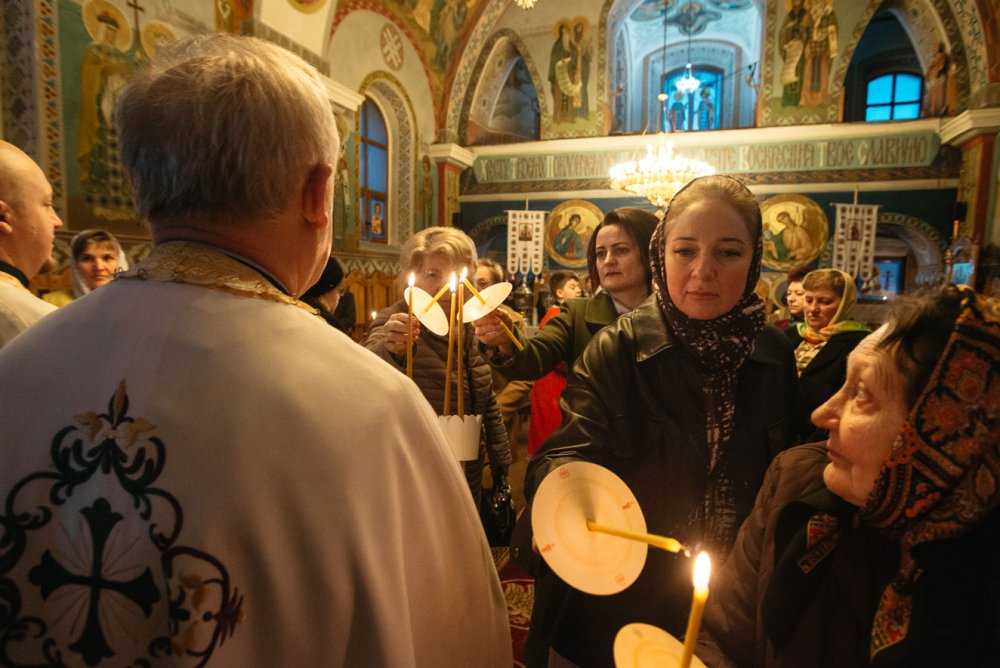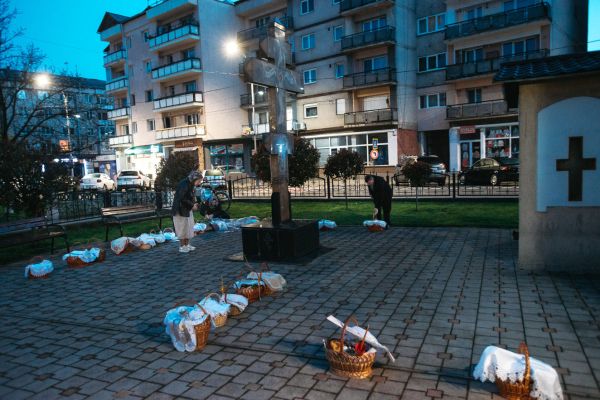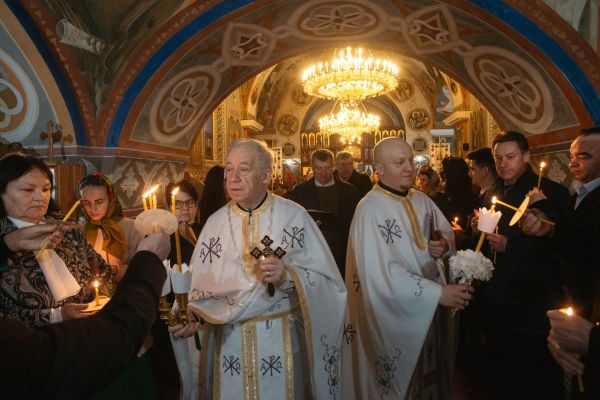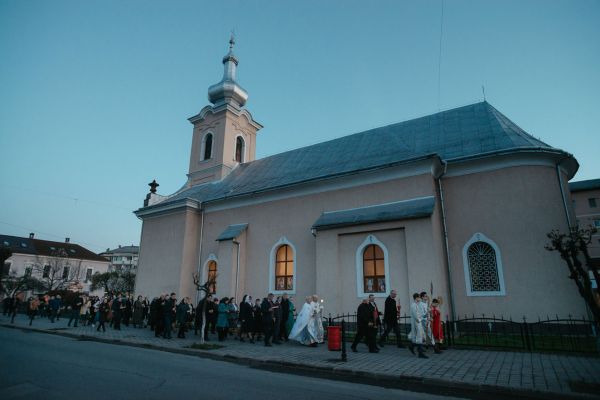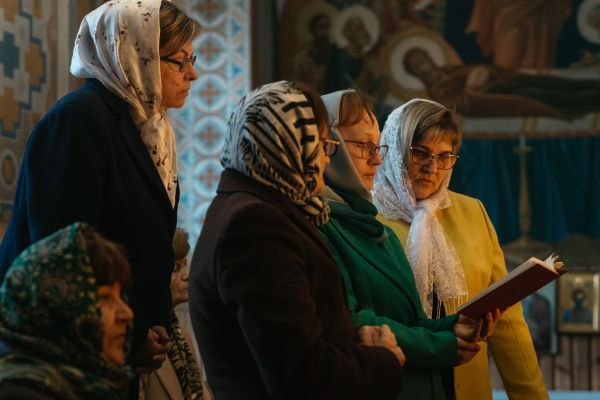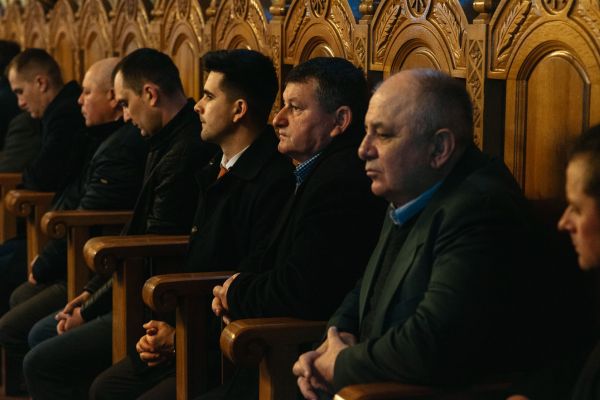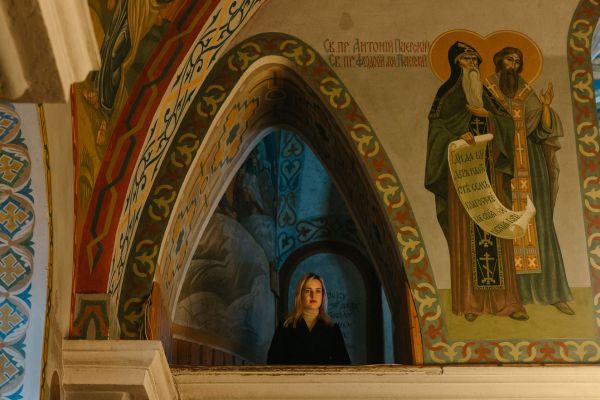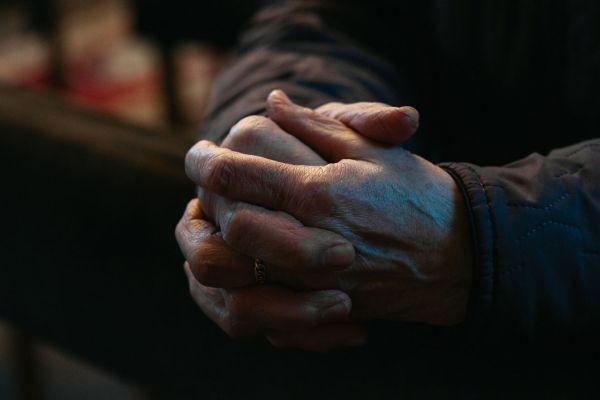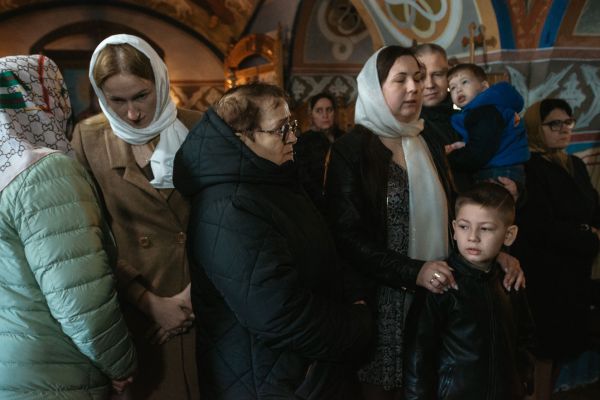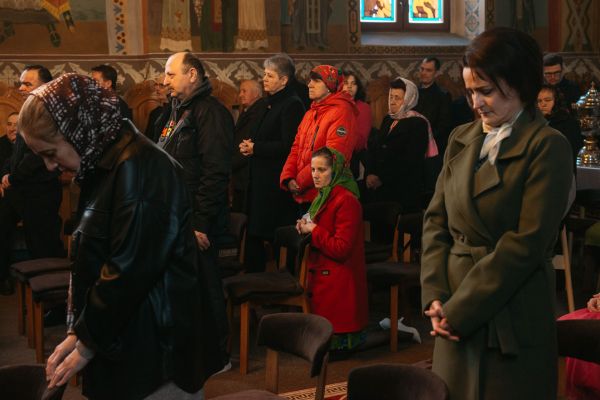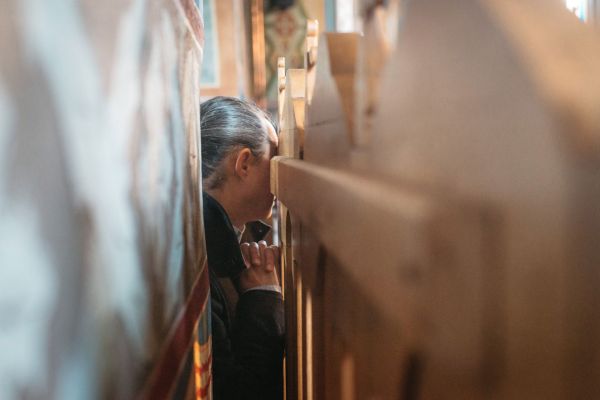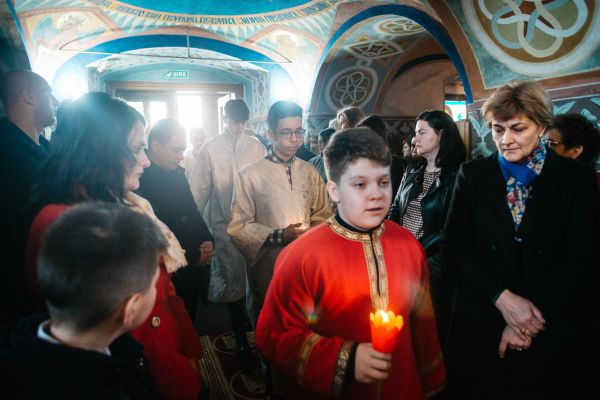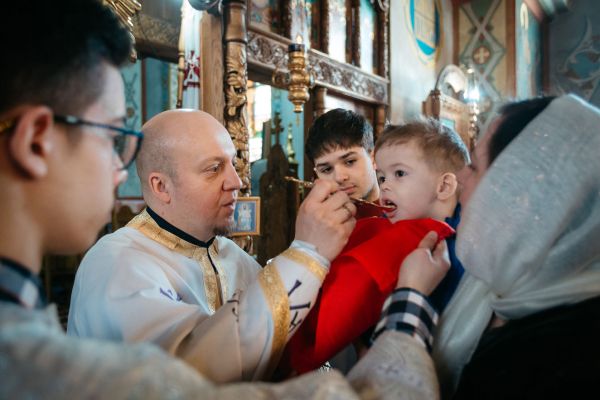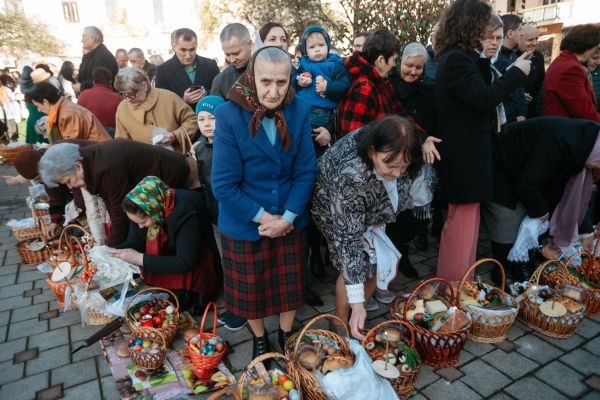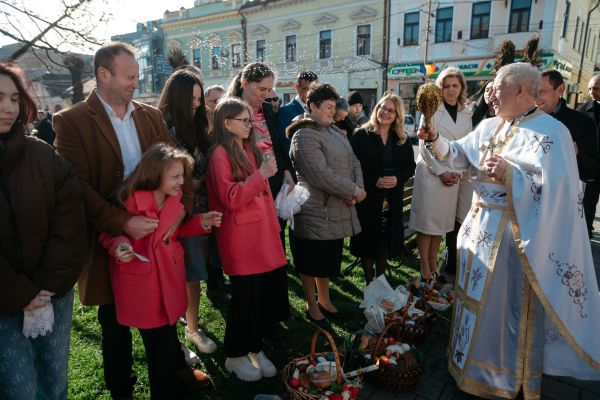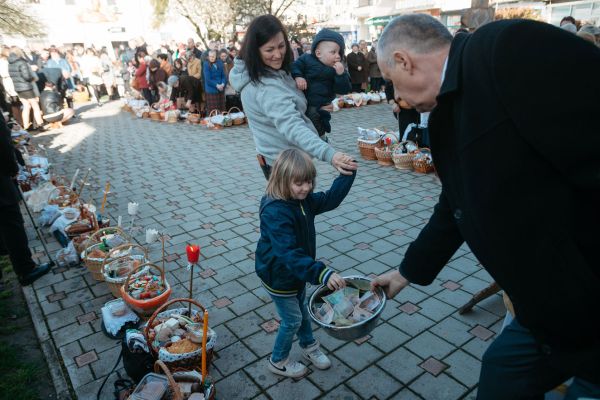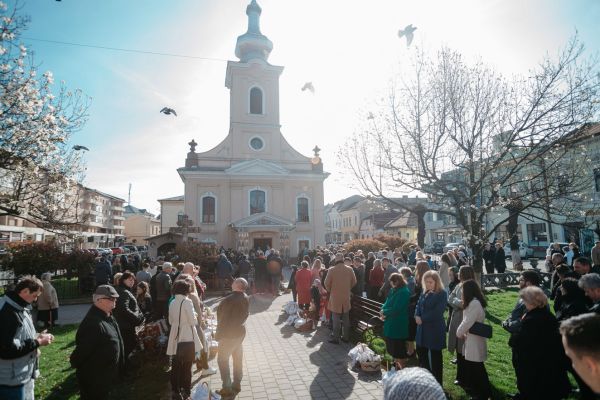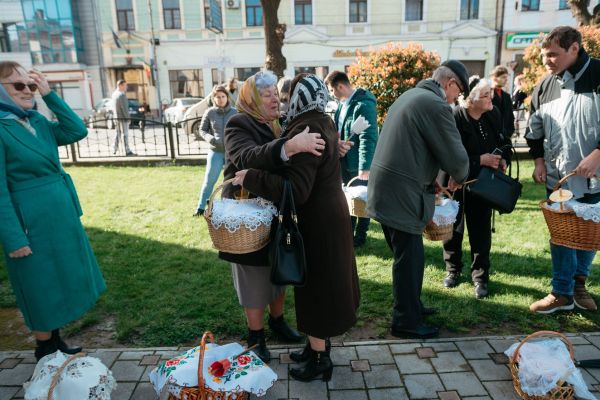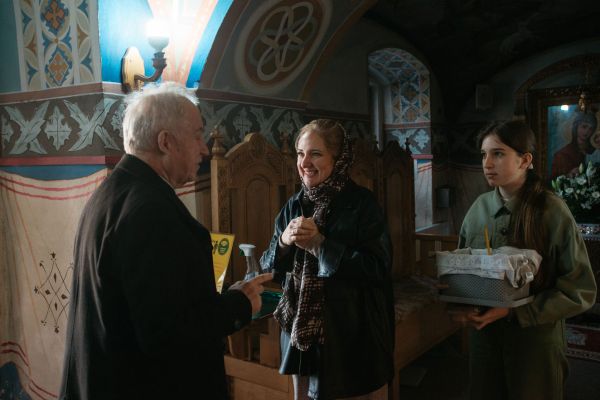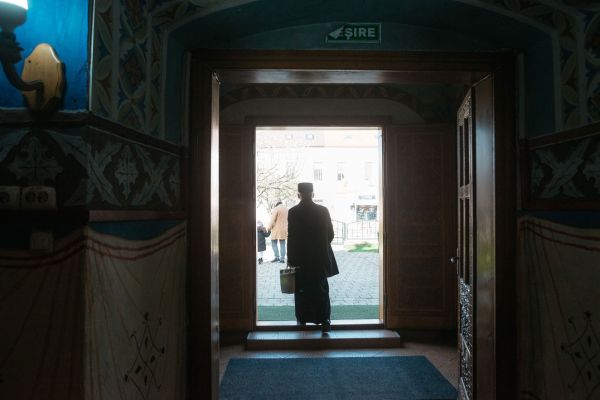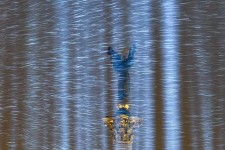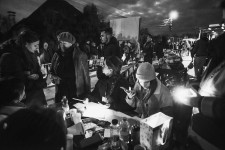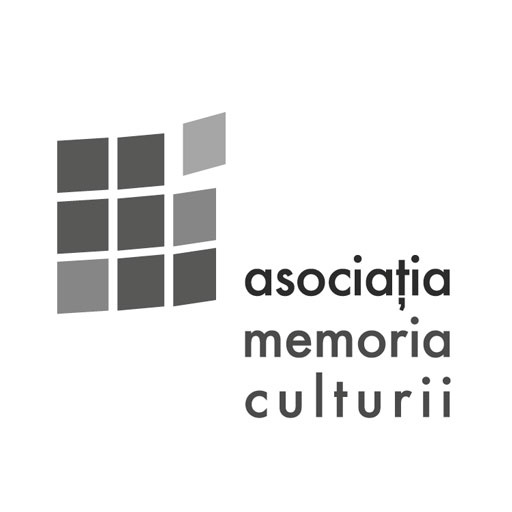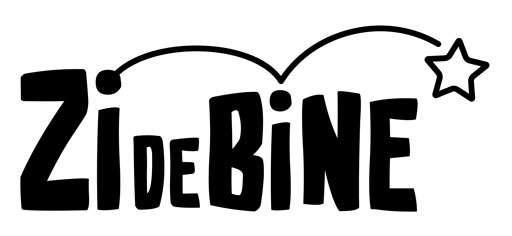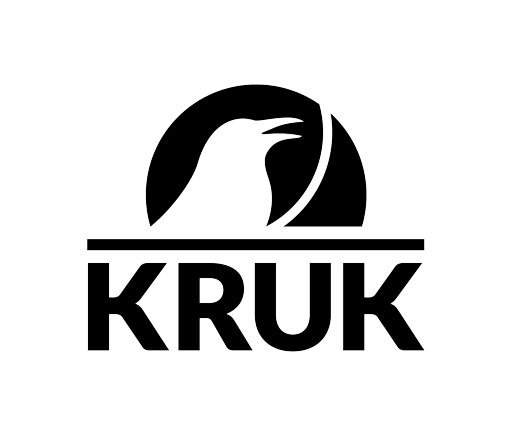The Ukrainian Orthodox church "Ascension of the Holy Cross" in Sighetu Marmației holds the Easter service at 6 am, as a symbol of the prude women who rushed to the tomb of Christ early in the morning, before sunrise, to anoint his body with spices. Whilepriests Nicolae Lauruc and his son, Marius Lauruc, lit the candles, there were about 40 people in the historic building who left their baskets of food, carefully stacked, in the churchyard.
Throughout the three-hour ceremony, lines of baskets will stretch across the nearby park, which features a monument to Ukrainian poet Taras Shevchenko at its very centre. For priest Marius Lauruc, it is one of the most important masses of the year: "We begin with the Mass of the Resurrection, followed by the Easter Eucharist, which includes songs that most of the congregation knows by heart. Afterwards there is the holy liturgy, and, at the end, the food baskets that people bring are blessed and consecrated."
Most of the participants are devout Ukrainian-speaking believers from Sighet, who belong to Ukrainian families from the surrounding villages. There are also those who travelled from abroad, and are returning home for Easter.
Northern Maramureș is home to the largest community of Ukrainians in Romania. Sighetu Marmației is considered to be their spiritual centre in the country, as it is the seat of the Ukrainian Orthodox Vicariate, a church administrative unit headed by Vicar Nicolae Lauruc and subordinated to the Romanian Patriarchate.
Nicolae Lauruc has been vicar since 2021 and has been serving the Ukrainian Orthodox Parish in Sighetu Marmației since 1990. He was previously a priest in Poienile de Sub Munte, a village mainly inhabited by Ukrainians, located about 60 kilometres east of Sighet.
Marius Lauruc grew up there up to the age of ten, when his family moved to Sighet. He chose to follow the path of priesthood. He graduated from the Faculty of Theology in Sibiu, Romania, then studied Orthodox theology for two more years at a Ukrainian university in Canada, home to one of the largest Ukrainian communities outside Ukraine. He then studied applied modern languages and, since 2007, has been serving as a priest for the Ukrainian Church in Sighet.
For the past two years, among the people who usually attended the Resurrection service at his church, there are also Ukrainians who took refuge in Sighet, fleeing the Russian invasion. There came in much smaller numbers this year because many of the refugees who arrived in Sighet chose to head for bigger cities or leaveRomania. Some of those who stayed found work and are trying to integrate by learning Romanian. But there are also information technology professionals, originally from large cities in Ukraine, who can work from home.
There are two classes for Ukrainian refugee children at the local Pedagogical High School "Taras Shevchenko": one for primary school and one for secondary school, where 50 children are enrolled. Classes take place in Ukrainian, they are held simultaneously by Ukrainian (or Ukrainian-speaking) teachers. Most of the refugee children attend online classes with their Ukrainian school teachers from back home.
Many of the refugees who settled in Sighet made no attempts to integrate. For priest Marius Lauruc "this is reasonable, as everyone is waiting for the war to end so they can return home. They do not make plans for more than a few weeks, or more than a few months. They are waiting for tomorrow to bring peace."








